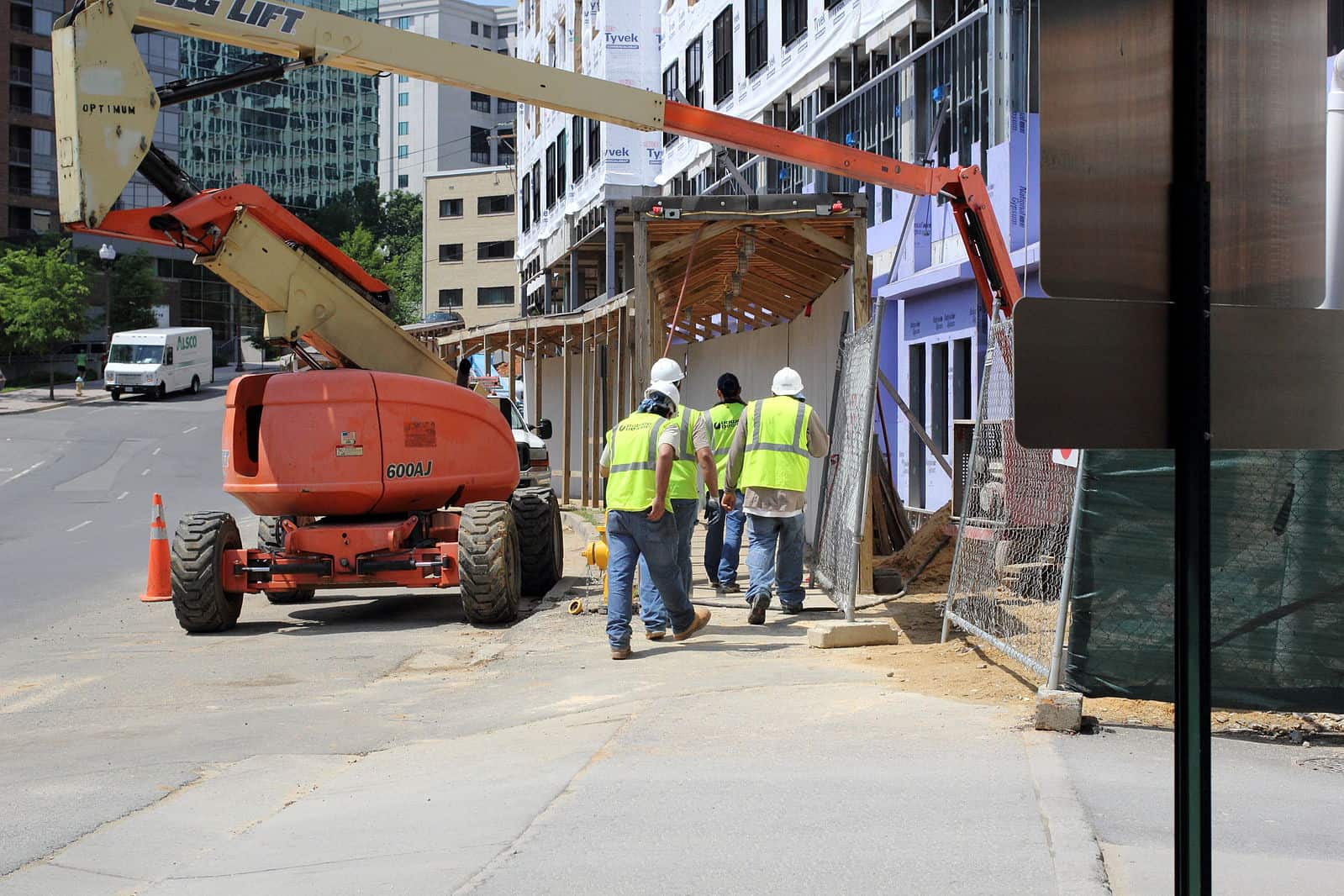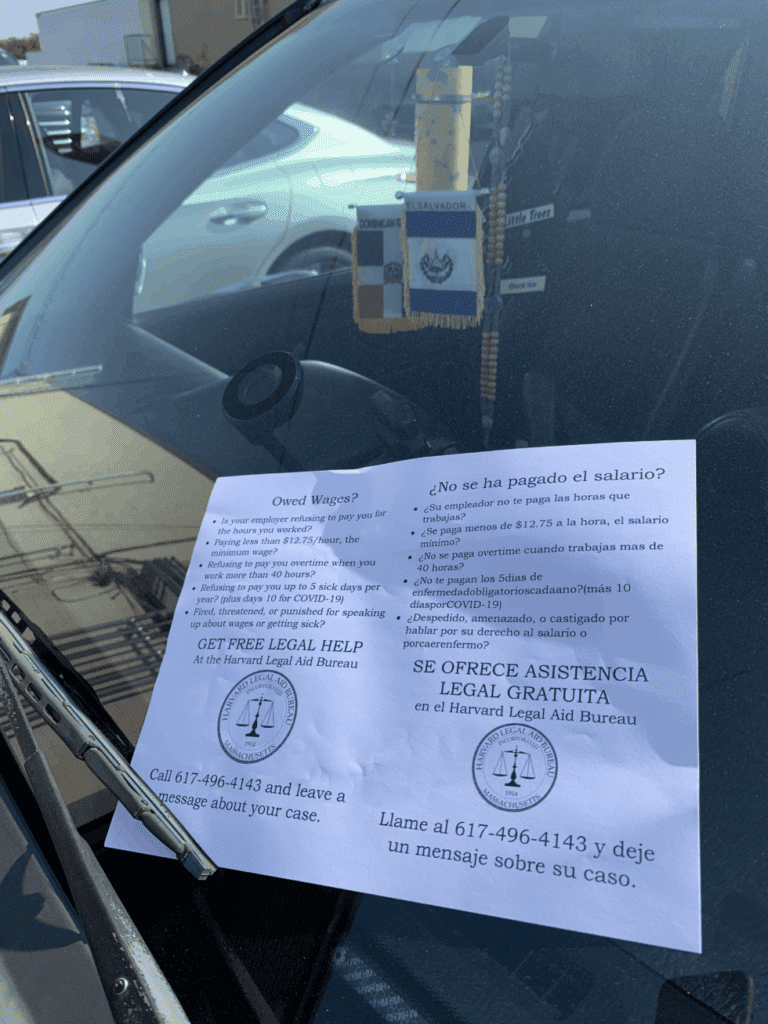
Nick is the Staff Attorney and Policy Coordinator for Workers Defense Project in Houston, Texas.
Manuel had spent all of a blistering Texas summer putting up drywall in the University of Houston’s new $124 million dormitory before he began to believe that his employer, a contractor on the university project, had been paying him nearly a third less than what he was entitled to under the law. During a know-your-rights training that Workers Defense Project organizers conducted on workers’ lunch break, Manuel heard for the first time about how prevailing wage laws require a higher minimum wage on public construction projects, like the UH dormitory he was building.
Wage theft is an enormous problem across the country and across industries. But construction workers and advocates have a powerful tool at hand that could win back workers’ wages, boost worker organizing efforts, and address the most glaring weaknesses of workers’ rights in overcoming the diffusion of responsibility in contracting chains.
To give a sense of the scale of the problem of wage theft, consider these facts: all property crime in the US in 2019 totaled just a little less than $16 billion, while workers lose approximately $50 billion to wage theft every year. The pervasiveness and scale of wage theft has been clear for quite some time, particularly in the construction industry. The exploitation of undocumented workers who are less likely to report wage theft and the prevalence of contracting chains that insource profits while outsourcing liability for employment issues has made the construction industry especially ripe for unchecked wage theft. Decades of conservative attacks on labor and employment laws have left workers with weak options for raising wage theft claims and winning what they are rightfully owed.
However, on public construction projects – where tax dollars are used to pay for the construction work – workers and advocates often have a unique advantage: prevailing wage laws.
When a public body spends tax dollars on a construction project, those construction sites typically must comply with stronger worker protection laws. Federally funded construction projects are subject to the Davis-Bacon and Related Acts (DBRA), and most states have their own version of this federal prevailing wage law, often referred to as the “little Davis-Bacon Acts” that cover construction projects funded with state and local tax dollars. Twenty six states, including Texas, where Manuel and more than a dozen other workers brought wage theft claims for work on the University of Houston’s dormitory, have prevailing wage statutes. Most prevailing wage laws do two important things: (1) they set a higher minimum wage for workers performing certain tasks on a construction site, and (2) they create accountability for workers’ rights throughout the contracting chain on a construction site.
To the extent that non-unionized workers or advocates have heard of prevailing wage laws, it is usually for the first reason – workers get paid more on public construction sites than they would on many private sites. These higher minimum wages are typically set by a survey of all the workers performing that type of task (e.g., of a painter, a drywall hanger, an electrician) in that geographic area (usually by county). This ensures that public contracts do not undercut the regional market and drive wages down, and it incentivizes public money to be spent on high quality services instead of merely the cheapest services available. Studies have shown that prevailing wage laws do not inflate construction costs while diminishing the likelihood that construction workers will earn incomes below the poverty level, rely on public assistance, and lack health insurance and retirement benefits.
But it is the second part of prevailing wage laws – creating accountability in the contracting chain – that holds potential for workers and advocates across the country. Most prevailing wage laws operate on a simple and logical rule for accountability: the party with the most power to make sure the law is followed on the worksite, the general contractor, is responsible for fixing any problems on its worksite, like wage theft by subcontractors. On a public construction project in Texas, for example, a worker who has had their wages stolen can bring a wage theft claim against their direct employer and the general contractor on the project.
Prevailing wage laws have typically only been enforced by federal or state government agencies or unions with enough resources and attorneys to fight back against the mistreatment of their members. But these laws can be powerful tools in the hands of worker centers, legal services providers, and community organizations as well.
In a conservative, southern state like Texas, Workers Defense Project and other legal services organizations have brought successful claims for hundreds of thousands of dollars using Texas’ little Davis-Bacon Act. Similar statutes are available to these types of organizations in other states as well. While the accountability mechanisms in prevailing wage statutes vary from state to state, typically there is either (1) an explicit description of the joint and several liability of contractors on public construction sites (like in California) or (2) the statute describes a process where a public body must withhold payment to a general contractor until the general contractor has corrected any prevailing wage violations by its subcontractors (like in Maryland). Texas’ statute uses this second model of withholding funds when there are violations, which requires the public body to withhold money from a general contractor that is not holding its subcontractors accountable for wage theft on its sites.
Not only do these laws offer a strong legal tool for winning workers’ wages; these types of claims can provide the legal hook and the necessary leverage for campaigns to raise standards for workers across public institutions.
WDP represented Manuel and more than a dozen other workers with prevailing wage claims from the University of Houston project and successfully settled more than $100,000 in wage theft claims. The fight for those workers’ rights opened the door for a much broader conversation about how the University of Houston will ensure workers are not exploited on their future construction projects, such as the $90 million new law school currently under construction or the $80 million new medical school which will break ground soon.
The accountability framework in prevailing wage laws offers the potential for much more than fighting wage theft on only construction projects. This same accountability framework already exists for service contracts at the federal level under the Contract Work Hours and Safety Standards Act (CWHSSA) and the McNamara-O’Hara Service Contract Act (SCA). These federal statutes cover janitors and property services workers on federal contracts. Just as states created statutes governing public construction (the “little Davis Bacon Acts”) that were modeled on the federal public construction statute (the Davis Bacon Act), states could do the same thing to create greater accountability in other public services contracting in other sectors beyond construction. Some jurisdictions, like the District of Columbia, have already taken this first step by expanding their prevailing wage statute to cover service contract workers beyond the construction industry.
Prevailing wage laws might not single-handedly reverse the challenges facing workers or the labor movement. But they do offer a strong legal tool for public sector construction workers and a starting point for crafting laws that protect workers in other industries.










Daily News & Commentary
Start your day with our roundup of the latest labor developments. See all
March 3
In today’s news and commentary, Texas dismantles their contracting program for minorities, NextEra settles an ERISA lawsuit, and Chipotle beats an age discrimination suit. Texas Acting Comptroller Kelly Hancock is being sued in state court for allegedly unlawfully dismantling the Historically Underutilized Business (HUB) program, a 1990s initiative signed by former Governor George W. Bush […]
March 2
Block lays off over 4,000 workers; H-1B fee data is revealed.
March 1
The NLRB officially rescinds the Biden-era standard for determining joint-employer status; the DOL proposes a rule that would rescind the Biden-era standard for determining independent contractor status; and Walmart pays $100 million for deceiving delivery drivers regarding wages and tips.
February 27
The Ninth Circuit allows Trump to dismantle certain government unions based on national security concerns; and the DOL set to focus enforcement on firms with “outsized market power.”
February 26
Workplace AI regulations proposed in Michigan; en banc D.C. Circuit hears oral argument in CFPB case; white police officers sue Philadelphia over DEI policy.
February 25
OSHA workplace inspections significantly drop in 2025; the Court denies a petition for certiorari to review a Minnesota law banning mandatory anti-union meetings at work; and the Court declines two petitions to determine whether Air Force service members should receive backpay as a result of religious challenges to the now-revoked COVID-19 vaccine mandate.